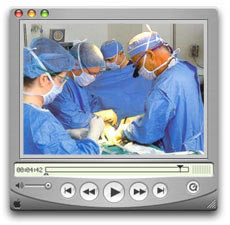Is Pregnancy Possible After Endometrial Ablation
Pregnancy After Endometrial Ablation And Tubal Reversal
Dr. Charles Monteith, a microsurgeon at Chapel Hill Tubal Reversal Center, explains that many women will have both a tubal ligation and an endometrial ablation procedure. Some of these women will regret their decision and wish to become pregnant. and that a successful pregnancy is possible after an endometrial ablation; however, there are unique risks of pregnancy in women who become pregnant after ablation. Women who are considering pregnancy after an endometrial ablation need to be carefully informed about these risks.
Both uterine artery embolization and endometrial ablation are procedures to treat heavy menstrual periods. Although they both decrease bleeding, each procedure is uniquely different.
The uterine artery embolization is done by a radiologist in a radiology procedure room and involves blocking the uterine arteries to decrease blood flow to the uterus and decrease blood loss during the menstrual period.
An endometrial ablation is a surgical procedure done by a gynecologist either in the office or the operating room and involves removing the endometrial lining of the uterus. This also helps to treat anemia by reducing or eliminating blood loss during menstrual periods.
Both of the above procedures are designed to treat anemia and heavy menstrual bleeding. They each do this through a different process and pregnancy is possible after either endometrial ablation or uterine artery embolization. The purpose of this series of articles is to explain the risks of pregnancy after endometrial ablation.
Pregnancy And Endometrial Ablation Procedure
The goal of the endometrial ablation is to permanently remove the endometrial cells that make up the lining of the uterus. There are many different types of ablation procedures:
Laser ablation
Roller ball electrocoagulation
Transcervical resection (actual removal of the lining)
Cryoablation – Freezing. (Her Option)
Thermal ablation -hot water balloon (Thermachoice)
Thermal ablation -hot water (HTA)
Microwave endometrial ablation (FemWave)
Electrocoagulation (Novasure)
Although there are many different endometrial ablation techniques, these procedures are all intended to have the same end result: removal of the endometrial lining and a reduction in the amount of bleeding during a menstrual period.
Menstrual Period And Endometrial Ablation
Most endometrial ablations are not very effective and will not remove 100% of the uterine lining. A significant number of women will continue to have menstrual periods immediately after or within five years of an endometrial ablation procedure. These are the women who are most likely to be able to become pregnant.
Endometrial Ablation: Tubal Ligation or Vasectomy?
Pregnancy is possible after an endometrial ablation procedure, and, because of the possibility of pregnancy, most doctors recommend a permanent form of birth control in women who undergo ablation procedures. The most common procedures during or after an endometrial ablation are vasectomy or tubal ligation. Some women who undergo endometrial ablations will use a hormonal form of contraception or rely on the protection sometimes afforded by older age.
Menstrual Period After Endometrial Ablation
Women who have a menstrual period after an endometrial ablation can become pregnant and pregnancies after ablation have been reported in the medical literature.
 Some women will accidentally become pregnant after an endometrial ablation. The majority of these pregnancies have been among women who were not using birth control or not using a reliable form of birth control or among those who have had a failed tubal ligation or vasectomy. Some pregnancies have been among women who have intentionally had either IVF or tubal ligation reversal.
Some women will accidentally become pregnant after an endometrial ablation. The majority of these pregnancies have been among women who were not using birth control or not using a reliable form of birth control or among those who have had a failed tubal ligation or vasectomy. Some pregnancies have been among women who have intentionally had either IVF or tubal ligation reversal.
Pregnancy is most likely to occur in women who have resumption in their normal menstrual cycles because these are the women who still have enough lining to create a menstrual period and support a pregnancy.
Endometrial Ablation And Tubal Reversal: Is Pregnancy Possible?
Many women will regret their decision to have a tubal ligation and endometrial ablation and will inquire about reversal. Most manufacturers of endometrial ablation devices and most physicians who perform endometrial ablations do not recommend becoming pregnant after an ablation procedure. Pregnancy is not recommended because of the higher risk of miscarriage and pregnancy loss.
Pregnancy after endometrial ablation and tubal reversal is possible but there are unique considerations regarding pregnancy after an endometrial ablation.
Readers are welcome to visit our Tubal Reversal Blog and read personal stories about tubal reversal and pregnancy success. We also invite readers to visit our Tubal Reversal Message Board and participate in ongoing discussions about pregnancy after endometrial ablation and tubal reversal.


No comments:
Post a Comment